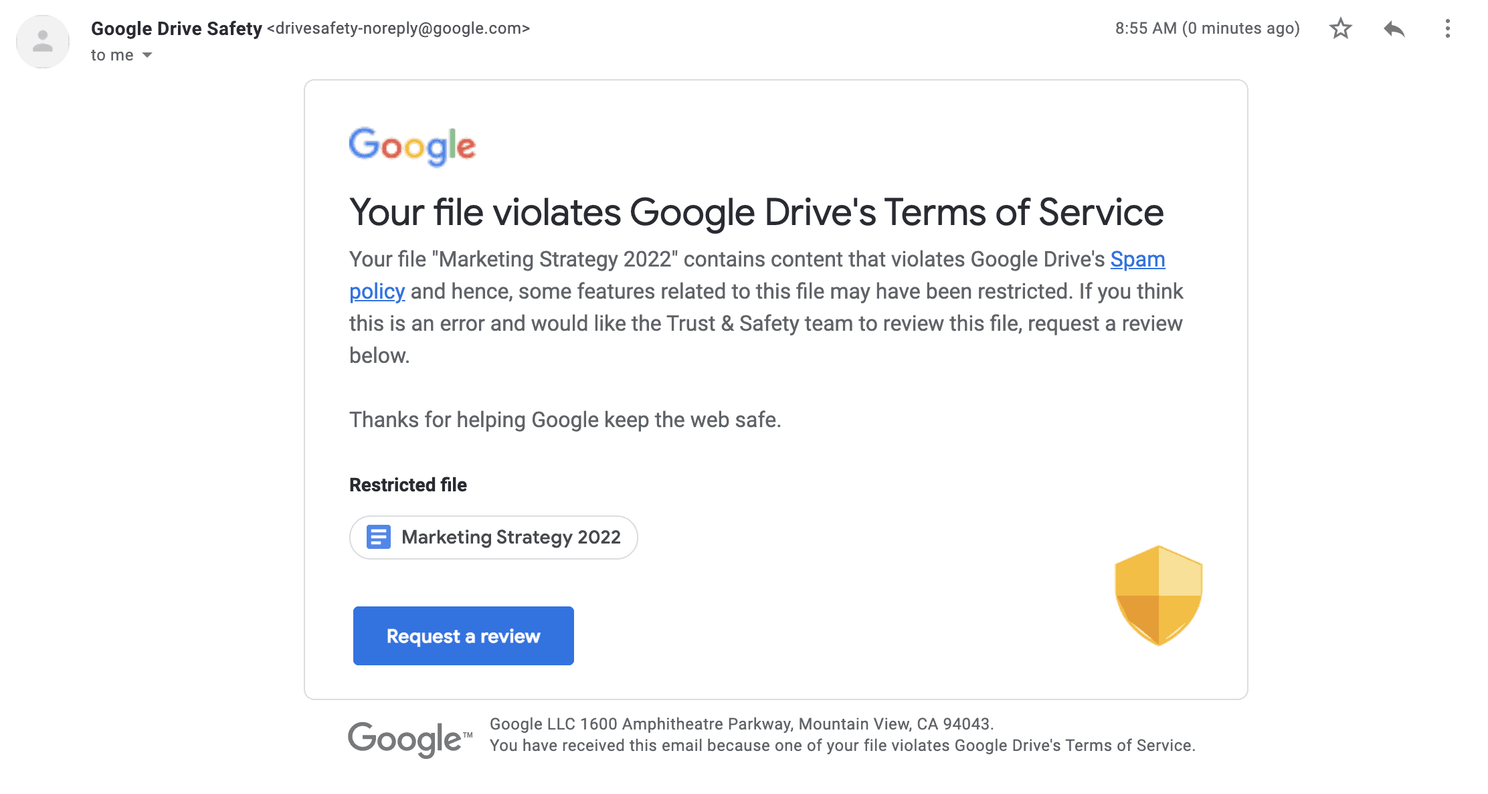According to Google’s official blog, when a Google Drive file is found to violate terms of service or program policies, it may be restricted. We were talking about this yesterday. Users will see a sign next to the file name. If it is there, users won't see any option for file sharing. Moreover, the file will no longer be publicly accessible, even if it is someone who has the link.
The owner of Google Drive will receive an email informing them what kind of actions should be taken. For files in the shared drive, the administrator of the shared drive will get a corresponding notification. This will help ensure that the owner of the Google Drive project is fully aware of the status of the content. Plus, this will help to ensure that users are protected from abusive content.

If a user’s file violates Google Drive policies, they will receive an email with detailed information and what they can do to request a review. The review will be rolled out gradually starting on December 14, 2021, and is applicable to all Google Workspace users as well as G Suite Basic and Business users.
“You can request to have your file reviewed if you don’t think your file violates Google's Terms of Service or program policies. If you own a file that’s been flagged for a violation, you may see a flag next to the filename and you won’t be able to share it. Your file will no longer be publicly accessible, even to people who have the link.”
Google Drive Terms You Should Pay More Attention
You can get acquainted with the terms of using the Google Drive service here. But there are too many points. So we decided to separate those that should be more important. Say, Google allows people under 13 to use the Drive service. But you need to have your parent or legal guardian’s permission. Second, Google even doesn’t hide that it earns money by allowing users to use its services. But for the Google Drive users, must accept the concept of how Google does this. Honestly, it’s a separate topic for conversation so we won’t focus on it at the moment.
More importantly, Google insists that you must respect others. This is a broad concept. But if briefly, you should comply with applicable laws, respect the rights of others, including privacy and intellectual property rights, and don’t abuse or harm others or yourself. With the last phrase, Google means you shouldn't mislead, defraud, defame, bully, harass, or stalk others. Google will also keep eye on whether you have the necessary rights for the content you upload or share.






Place comments
0 Comments
You are currently seeing only the comments you are notified about, if you want to see all comments from this post, click the button below.
Show all comments